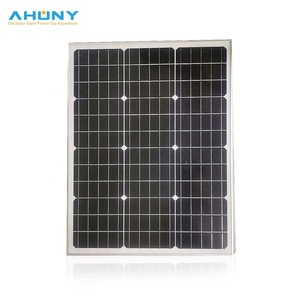Introduction to Solar Panel Bypass Diodes
Solar panel bypass diodes are essential components in modern photovoltaic (PV) systems. They play a critical role in enhancing the performance and longevity of solar panels. By allowing current to bypass shaded, damaged, or malfunctioning cells, these diodes ensure that the rest of the solar panel continues to function efficiently. In this description, we will explore the various aspects of solar panel bypass diodes, including their types, applications, key features, and advantages.
Types of Solar Panel Bypass Diodes
There are a few different types of solar panel bypass diodes that cater to distinct needs and applications:
- Standard Bypass Diodes: These are the most commonly used diodes and are typically integrated directly into solar panels. They protect individual solar cells by allowing the current to flow around any obstructed or malfunctioning cells.
- High-Temperature Rated Diodes: Designed to withstand higher operating temperatures, these diodes maintain efficacy even in extreme climatic conditions, making them ideal for locations with high sunlight exposure.
- Fast Recovery Diodes: These diodes are engineered for rapid switching capabilities, which enhances the overall efficiency of the solar system by minimizing energy loss during changeovers.
- Schottky Diodes: Known for their low forward voltage drop, Schottky diodes are employed in high-performance applications, enhancing the electrical efficiency of the solar panels.
Applications of Solar Panel Bypass Diodes
Solar panel bypass diodes are extensively utilized across various applications:
- Residential Solar Installations: Ensuring consistent energy production from residential solar panels, even if some cells are shaded or defective.
- Commercial Solar Systems: Vital in large scale solar setups, improving overall energy yield and system reliability, particularly in urban environments with towering buildings that may cast shadows.
- Agricultural and Rural Settings: Essential for solar setups in farms and off-grid areas, where limited maintenance access makes bypass capability crucial for uninterrupted energy supply.
- Solar Power Stations: Used in utility-scale solar farms to enhance the performance of massive arrays, ensuring optimal output under varying sun exposure conditions.
Advantages of Integrating Solar Panel Bypass Diodes
Utilizing solar panel bypass diodes provides a multitude of benefits that enhance the efficiency and durability of solar energy systems:
- Improved System Efficiency: By enabling unaffected solar cells to continue operating efficiently, bypass diodes significantly increase the overall output of the solar panel system.
- Enhanced Safety: Bypass diodes mitigate the risk of damage from overheating by directing excess current, promoting safer operations of the solar panels.
- Longevity of Solar Panels: Protecting against cell degradation due to shading ensures that solar panels have extended lifespans and maintain their performance over the years.
- Cost-Effective Investment: By improving energy production and reducing maintenance needs, bypass diodes can lead to a higher return on investment for solar system owners.
How to Choose the Right Solar Panel Bypass Diode
When selecting the appropriate solar panel bypass diode, consider the following factors:
- Current Rating: Ensure that the diode you choose can handle the operational current of your solar panel to prevent overheating.
- Voltage Rating: The diode should have a voltage rating higher than the maximum voltage output of the solar panel to ensure safety and reliability.
- Operating Temperature: Check the temperature ratings of the diodes to ensure they can perform effectively in your environment.
- Physical Size: Choose a physically compatible diode that can be seamlessly integrated with your solar panel configuration.















































































































































































